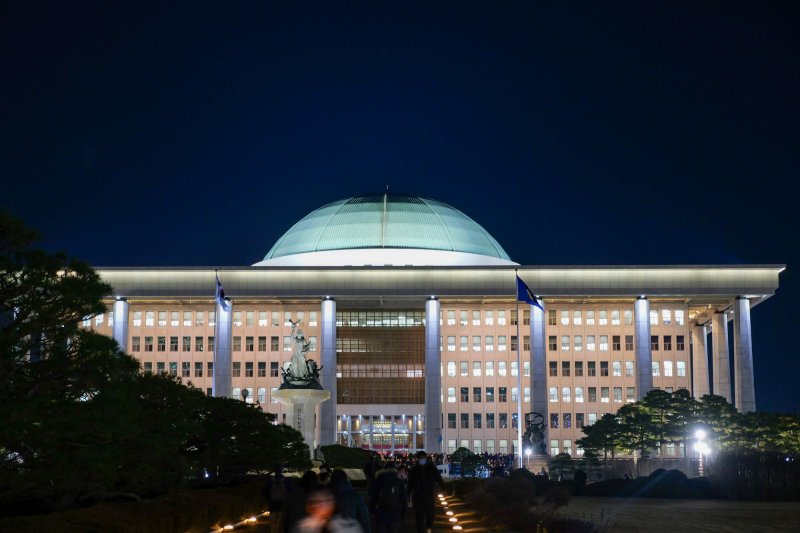South Korean opposition lawmakers said Thursday they will hold an impeachment vote against President Yoon Suk Yeol on Saturday. Yoon declared martial law on Tuesday but his decree was overturned by the National Assembly hours later. Photo by Thomas Maresca/UPI |
License PhotoSEOUL, Dec. 5 (UPI) — South Korean opposition lawmakers are pushing to hold an impeachment vote on Saturday against President Yoon Suk Yeol as the fallout from his short-lived declaration of martial law continues.
Cho Seung-rae, spokesman for the Democratic Party, said the opposition plans to bring a vote on the motion at around 7 p.m. Saturday.
An impeachment would require the support of two-thirds of the 300-member parliament. The opposition controls 192 seats, needing an additional eight votes from the president’s People Power Party to pass the motion.
If the impeachment passes, it will then be sent to the Constitutional Court, which must reach a decision within six months. Prime Minister Han Duck-soo would relieve Yoon of his duties and step in as interim leader during this period.
Even if Yoon survives the impeachment vote, he faces overwhelmingly negative public opinion in the wake of his shocking declaration of martial law late Tuesday night, with protests and candlelight vigils continuing to spring up around the country. According to a survey by South Korean pollster Realmeter on Wednesday, 73.6% of respondents supported Yoon’s impeachment, while 70% agreed that his actions could constitute treason.
“I declare martial law in order to eradicate the shameless pro-North Korea anti-state forces that are plundering the freedom and happiness of our people and to protect the free constitutional order,” Yoon said in his televised declaration.
Some 190 lawmakers rushed to the National Assembly in the early hours of Wednesday morning and voted to overturn the decree, however, which was then formally lifted around 4:30 a.m. during a Cabinet meeting.
The entire cycle lasted only six hours, but the shockwaves are being felt both at home and around the world.
On Thursday, Yoon accepted the resignation of Defense Minister Kim Yong-hyun, who took full responsibility for the soldiers who performed their duties under martial law. Roughly 280 troops broke into the National Assembly building after the martial law declaration, with live television footage showing parliamentary aides trying to block the soldiers by spraying fire extinguishers.
Chung Jin-suk, Yoon’s chief of staff, said in a briefing that the embattled president has nominated current South Korean Ambassador to Saudi Arabia Choi Byung-hyuk to succeed Kim.
Yoon’s entire Cabinet and all of his aides have also offered to step down from their posts in the aftermath of the debacle.
South Korea’s strongest ally, the United States, was caught off-guard and rattled by the martial law decree, officials said Wednesday.
“We were not consulted in any way,” National Security Adviser Jake Sullivan said during an event at the Center for Strategic and International Studies in Washington. “We learned about this [martial law decree] from the announcement on television, the same way the rest of the world did. It raised deep concern for us.”
U.S. Deputy Secretary of State Kurt Campbell called the short-lived decree “completely, deeply unpredictable.”
“I think President Yoon badly misjudged,” Campbell said at the Aspen Security Forum.
However, Campbell pointed to the rapid response to overturn the declaration as a positive sign of the strength of South Korea’s democracy.
“The fact that people were prepared to come out and make clear that this was a deeply illegitimate process and that would be met by the will of the people and the will of the legislative bodies — I think we have to take some comfort and confidence in that,” Campbell said.
